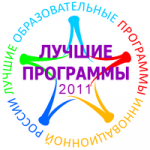|
Lawyers from both Russia and Germany discussed a dialogue between Russia and European Union.
The "Russia - European Union: judicial dialogue" international theoretical and practical conference took place at SFU on September 25-26, 2014. The Law Institute at Siberian Federal University hosted a university-based conference which was held in co-operation with the Institute of State and Law of The Russian Academy of Sciences, under the aegis of the Russian-German Law Institute (RGLI). RGLI is a non-government initiative that consolidates many leading Russian, German and Austrian scientific centers. More than one hundred lawyers, including high-powered German and Russian advocates and scientists, met in Krasnoyarsk to participation in the conference. The head of the Krasnoyarsk Krai Industrialist and Entrepreneur Union Mikhail Vasiliev and the deputy administrator of the Krasnoyarsk Krai Federal Antimonopoly Service Evgeny Luzhbin also took part in the conference. «For the first time, the conference is taking place not, in the capital, but in the geographical heart of Russia, in Siberia. Despite the complicated international situation the representatives from German universities continue to discuss contemporary legal issues with both Russian scientists and representatives of governmental authorities. These talks prove that interest in Russian-German law co-operation is unquenchable. Moreover, the urgency of the conference' s theme is increasing beyond all previous boundaries -- something which the director of the Law Institute at Siberian Federal University Irina Shishko has noticed. "The theme of the legal dialogue between Russia and the European Union needs to be discussed in a reasonable manner, taking different options into account. Comparing the different approaches of the two parties, we have found common ground. Going forward, we can make steps toward improvement," says the co-chairman of the Russian-German Law Institute, professor of The University of Kiel (Germany), Alexander Trunk, Doctor of Law. "My report dealt with the legal consequences of imposing sanctions on business entities in the context of civil and private international law. It is obvious that such measures have deplorable consequences, and it is necessary to find a way out. I am sure that the interests of both parties are not controversial. We need to focus on positive development. A lot of fruitful contacts have been obtained within these 20 years." The topics discussed were: measures of governmental control, the inviolability of person and reasonableness of enforcement actions, and also measures of government intervention in the economic activity which can save the balance of public and private interests. It should be added that students, master’s degree students, and post-graduate students of SFU took an active part in the international conference. "The Participation of the emerging generation in such events is very positive for the growing juridical community. We hope that comparative law research will increasingly draw students in later on," reported Lyudmila Mayorova, the associate professor of the chair of criminal proceedings, and candidate of legal sciences. The outcome of the conference was announced by the vice-principal for science of the Law Institute, and candidate of legal sciences, Anna Vasilieva: "It is important that in this complicated situation we have been able to consolidate the scientific interaction between countries. Considerable legal research was carried out in the framework of cooperation with RGLI and the Law Institute at SFU. The conference allowed us to demonstrate such research, and to exchange scientific results,". |


